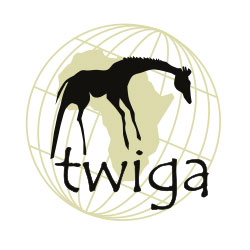In conversation with
Mr Damian de Lange
Chief Executive Officer | Twiga Services and Logistics (Pty)

Tags: africa, Defence, manufacturing and technology, SADC, south africa
FDI Spotlight: What is the DNA and culture of Twiga Services and Logistics?
Damian de Lange: Twiga operates in the defence industry sector, which is not an easy sector in which to operate and more so when our aim is transfer technologies and capabilities to support maintenance of acquired equipment and, where possible manufacture equipment locally.
We are moving away from the standard thinking in South Africa where often Africa is seen as a market to sell products to. We want to see Africa, and other parts of the developing world, as areas where there are opportunities for collaboration in business and the development of indigenous capabilities. We look for partnerships where we can, together with local partners, develop capabilities that are aimed at local manufacture and supply into an agreed market areas.
South Africa has a lot to offer and to leverage from. There are well-developed transport hubs, transport infrastructure, excellent financial services, some great manufacturing capabilities and niches in innovation and design. This is the base from which Twiga operates but we see and understand that this may be a time-bound advantage as countries in Africa, and in other parts of the developing world, are building their own capacities and capabilities.
At Twiga we have people who have backgrounds and experience in engineering, military engineering, design and the development of manufacturing processes. We want to take advantage of the South African economic base and, together with our team, develop those partnerships that will further develop maintenance and manufacturing capabilities in Africa, albeit in the challenging defence industry environment.
We design, develop and qualify prototypes, mainly in South Africa because there is a well-developed qualification capability for military and related equipment. Together with our ability to develop the required manufacturing processes we can work together with clients to transfer the skills, knowledge and technology that underpins manufacture outside of South Africa.
Many developing countries are looking towards using their defence acquisition monies to move away from direct imports and rather develop local maintenance and support systems and even local manufacturing systems as.
Where possible Twiga works at the establishment of sister companies where there is a requirement for a local defence industry or development of a local defence industry. We have a sister company in Uganda and in Namibia. These companies are stand-alone. They are registered in the respective countries, hold their own profit and losses, pay local taxes and employ local personnel.
Although each company is a stand-alone where it makes business sense, such as the development of prototypes, the sister companies may contract one another to ensure are charges are well below what the market demands. In this way each company gains something and can supply its respective client locally.
Twiga is not the only company that works in this fashion although there may be fewer in the defence industry sector compared to the overall South African commercial sector. We believe in mutual development and collaboration to achieve success, even in an area of high competition and stringent control which the defence industry is.
I believe the DNA of Twiga is geared towards building collaborative business partnerships where all parties in the value chain benefit something and the client secures an ownership and control which enables local manufacture and possible exports.
Has the South African Defence sector lost its edge regarding design and manufacturing?
Damian de Lange: The legacy that South Africa had in the Defence sector is being lost. Our defence sector remains with a focus on legacy equipment, such as armoured vehicles, which can and are being designed, developed and manufactured across the world. The competition in this area is great.
Some South African defence industry companies have moved into new areas, often using foreign-owned capabilities. Companies such as Saab and Reutech seem to continue to develop in a demanding economic environment by securing contracts based on high technology items and the ability to integrate sub-systems.
The desire to develop local South African capabilities remains challenged and the simple reliance on foreign knowledge and expertise may cause South Africa’s defence industry falling to a provider of items rather than whole equipment. We, as South Africans, have the potential and the knowledge and experience. The challenge now is how we use this heritage – or lose it.
The South African Defence Industry, recognises the challenges and, I would argue, that some companies have moved towards developing niche items and the improved integration of subsystems onto platforms rather than on focussing on the platform itself.
There is a need for us, in the South African defence industry, to think outside the paradigm left behind by Apartheid and the Cold War. We need to identify what are our strongest points and what we can develop, and own, that we can provide to defence industry clients. And we need to understand what the defence market wants and what the market is prepared to pay for this. The international defence industry sector is not waiting for us. They are competing and supplying.
The challenges for South Africa are many. Apartheid has left us with a legacy that will take decades to repair. We have challenges in our bureaucracy, education and other systems. It would be foolish to argue that these do not negatively affect defence industry business today and into the future.
The face of warfare, has not changed, and in many other ways has changed. Asymmetrical warfare, Cyber-warfare, using trucks to drive into civilians and lone-wolf operations have become part of warfare. The divide between defence and public security has become blurred. Poachers use military tactics which requires a type of military response. To stay ahead in the defence and security industry South Africa may have to focus more energy on the development of sensors and software controlled unmanned vehicles rather than building manufacturing plants that may not have a product and may not have a potential client.
Another challenge facing the South African Defence Industry, which is not unique to South Africa, is the role and function of State-Owned Defence Industry companies. Will these State Owned Companies contribute to the development of the whole defence industry and ensure the governmental support and funding they receive secures contracts that are built on the wider South African defence industry capabilities. Or, will they compete in the market and by virtue of the financing from government contribute to the demise of the South African defence industry, especially the SMME defence level companies.
The South African Defence Industry is probably standing at a critical juncture. We still have sufficient capabilities to develop what the market needs now and into the future. We need to do this together while maintaining the competition that business thrives on. We need to improve our bureaucracy so we can continue to meet international arms control requirements without unnecessary impediments to business. We need to ensure that our Defence State-Owned Companies use their resources and access to government monies to encourage and develop the local defence industry. We must work together in South Africa.
Why is it essential for private sector initiatives such as CEO Pledge and the SME Fund to exist?
Damian de Lange: Private sector initiatives can be positive drivers but the challenge that South Africa faces, which is a global issue, is that an uncontrolled private sector will focus on profit at all cost to the detriment of the majority. And, if you add to this challenge a public sector being run like a business and a wealth creating system the result is the exponential growth of a wealthy few and a very poor majority. This cannot be good for any country.
South Africa needs private sector initiatives to promote good governance, compliance and transparency. This needs to be done more so in dealings with government, the Public Sector and where competition regulations may be challenged.
At the same time, South Africa needs to develop innovative ways of developing and supporting SMMEs. For example, the Companies Act requires a lot of companies, from small to big. The relative cost to a small company to ensure compliance is greater than to a large company. Maybe we need to develop hubs that provide these services to SMMEs on a just above cost basis while ensuring complete transparency, especially where taxpayers monies are being utilised.
South African companies pay taxes, skills development levies, unemployment contributions and more. How are these funds being used to develop businesses and grow SMMEs or develop products or Intellectual Property? The impact of corruption and poor management cannot be ignored and the Private Sector needs to be seen actively addressing these issues – not taking advantage of them. The amount of monies that are being generated through these systems are not insignificant and could be used with greater effect in a transparent and accountable manner.
And, the challenges in South Africa are not from the Public Sector alone. Recently we have seen examples of very large companies, some part of international or global companies, seriously breaching corporate governance and enabling the misuse of taxpayers monies.
What is essential is for a healthy, transparent and accountable symbiotic relationship between the Private Sector and the Public Sector with credible and independent watchdog organisations.
On a scale of 1 to 10, how confident are you in the investment opportunities in South Africa over the next 5 to 10 years?
Damian de Lange: I would say I am hovering around a 7. South Africa has many challenges which arise from our Apartheid history. We have made great advances and the South Africa of today is not the South Africa of Apartheid. But, we have squandered a lot which could have been used more productively. Our education system, which should provide the new educated blood, has been broken down where the bulk of those leaving school have doubtful qualifications. Corruption has become part of the Public and Private Sector behaviours. Poor Service for the majority of our population has become the norm. As I have said our challenges are many.
We tend to export our commodities in the raw form notwithstanding our dreams to beneficiate. On the positive side we see people rising to the challenges and succeeding. There are new, real black industrialists developing who now supply into the international market openly competing with their peer groups. And, some of us are rethinking how to meet the new challenges and succeed. From a foreign investment point of view, I would argue now is the time to invest. It is cheaper now but as we move forward the returns will be made.
